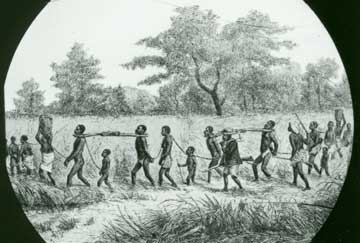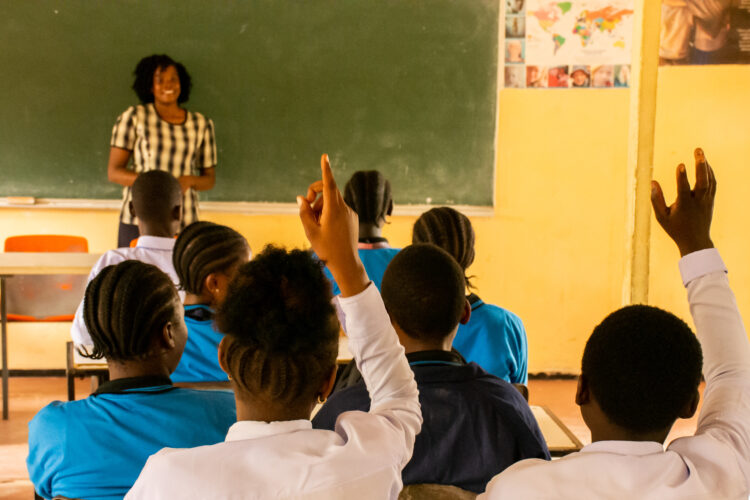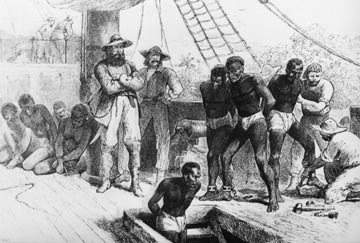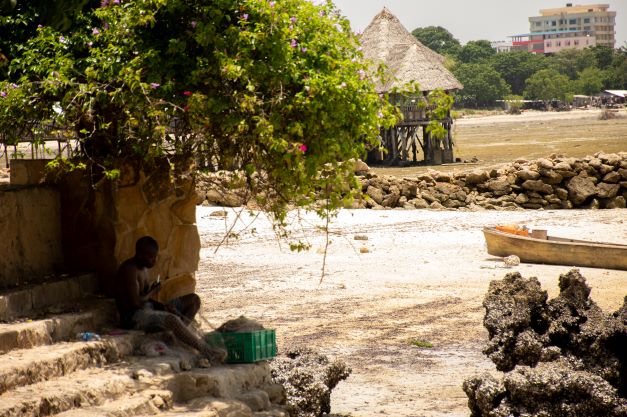
Speak out about modern slavery
We have a host of resources available for individuals, schools and faith groups
Download our free resources to help raise awareness of modern slavery in your communities
Addressing Forced Labour in Global Supply Chains
17.3 million people are estimated to be in forced labour in the private sector and 3.9 million in state-imposed forced labour. Tackling the root causes that drive this forced labour requires a toolbox of measures. In this brief we outline the measures that are needed to truly tackle forced labour in global supply chains.Principles for strengthening measures on Supply Chains through the new Modern Slavery Bill
Following the UK government’s announcement of a new Modern Slavery Bill which aims to reduce the prevalance of modern slavery in supply chains, we, along with allies outlined the principles for strengthening measures on supply chains with this Bill.
There is huge potential for action by businesses to reduce modern slavery around the world. The Transparency in Supply Chains provision of the UK’s Modern Slavery Act 2015 led the world in addressing modern slavery in company supply chains. However, non-compliance and poor quality reporting has limited its effectiveness and it has become evident that additional legal approaches beyond reporting are necessary. The forthcoming bill is an opportunity to strengthen our legislation and give the UK the tools needed to prevent goods produced through forced labour entering UK supply chains.
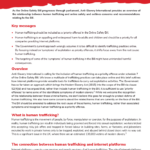
Online Safety Bill Briefing
Anti-Slavery International. The brief provides parliamentarians with an overview of the relationship between human trafficking and online safety and outlines concerns and recommendations relating to the Bill.
Download the briefing:
Our response to the European Commission call for evidence on the proposed EU forced labour instrument
In February 2022, the European Commission committed to preparing a new legislative instrument to “effectively ban products made by forced labour from entering the EU market”.
The European Commission has since committed to publishing its proposal for this instrument in September 2022, and in May 2022 published its Call for Evidence for this proposal, committing to a ban which would cover both domestic (EU) and imported products. On 9 June 2022, the European Parliament voted overwhelmingly in favour of a resolution, which advocates strongly for a new trade instrument to ban products made by forced labour.
Anti-Slavery International and the European Centre for Constitutional and Human Rights (ECCHR) welcome these developments with a view to ensure that goods made or transported in-whole or in-part with forced labour, including forced labour of children, cannot be sold in the European Union.
This contribution builds on Anti-Slavery International and ECCHR’s experience in working with partners based in countries with a high prevalence of forced labour which are linked to supply chains of products sold in the EU. Furthermore, this contribution builds on the lessons learnt from existing import control measures in the USA, and analysis of current gaps in EU legislation.

One day at a time: reviewing the Recovery Needs Assessment (RNA) (2022)
“One day at a time” looks at the experience of the Recovery Needs Assessment (RNA) process. It charters the first-hand experiences of, not only those on the receiving end of support, but also the experiences of Modern Slavery Victim Care Contract (MSVCC) support providers, along with, support workers outside of the MSVCC.
Joint UN universal periodic review submission: trafficking and modern slavery in the UK (2022)
Research and analysis from the anti-trafficking sector has demonstrated the considerable shortcomings within the UK’s anti-trafficking framework, failing victims and survivors of trafficking.
The UK government has tended to view trafficking and modern slavery as a discrete form of abuse rather than existing at the extreme end of a continuum of exploitation. Working conditions must be improved generally to avoid situations degrading to the stage where they amount to human trafficking. Strengthening the labour market enforcement can help to embed a model based on proactive protection rather than simply redress once a situation has degraded to a sufficient level of severity.
This joint submission looks at the impacts of the UK’s immigration enforcement-centred approach, current obstacles in the identification and protection of victims of trafficking and modern slavery and provides a series of recommendations.
Joint Submission for the Universal Periodic Review of the UK – Migrant Domestic Workers
Anti-Slavery International, Dignity at Work, Focus on Labour Exploitation, Kalayaan, Kanlungan, and The Voice of Domestic Workers.
Migrant domestic workers in the UK – the majority of whom are women – continue to suffer from widespread abuse and exploitation, including situations of trafficking and modern slavery. The Overseas Domestic Worker visa increases vulnerability to exploitation as it restricts migrant domestic workers to a non-renewable six-month visa. While there are mechanisms in place to identify and provide support to victims of trafficking and modern slavery in the UK, these only apply to migrant domestic workers whose treatment amounts to the legal definition of trafficking and modern slavery. Ahead of the 2022 Universal Periodic Review of the UK, Anti-Slavery International, along with other organisations, submitted evidence relating to migrant domestic workers in the UK.
Joint Submission for the the Universal Periodic Review of the UK:
UN universal periodic review submission: migrant domestic workers in the UK (2022)
Migrant domestic workers in the UK, the majority of whom are women that live in their employer’s household, continue to suffer from widespread abuse and exploitation, including situations of trafficking and modern slavery
This is a joint submission by Anti-Slavery International, Focus on Labour Exploitation (FLEX), Kalayaan, Kanlungan Filipino Consortium, and the Voice of Domestic Workers. The submission focuses on abuse and exploitation, including trafficking and modern slavery, of migrant domestic workers in the UK.
The Overseas Domestic Worker visa increases vulnerability to exploitation because it restricts migrant domestic workers to a non-renewable six-month visa, against the recommendations of an independent review commissioned by the Government itself3. The inability to renew the visa renders the right to change employer inaccessible in practice and leaves migrant domestic workers to face abuse and exploitation with no escape route. It also obstructs access to justice and remedy when abuse occurs. New protections for migrant domestic workers announced by the Government in 2016 have either been dropped altogether or are not being implemented in practice.
Joint submission to the UN Special Rapporteur on contemporary forms of slavery – state imposed forced labour in the Uyghur region
A joint submission by Anti-Slavery International, Investor Alliance for Human Rights, Uyghur Human Rights Project, and World Uyghur Congress on systematic imposed forced labour in the Xinjiang Uyghur Autonomous Region (the Uyghur Region) targeting the Uyghur population and other Turkic and Muslim-majority peoples on the basis of their religion and ethnicity.
February 2022: Joint submission to the UN Special Rapporteur on contemporary forms of slavery – descent based slavery in Mali, Mauritania and Niger
A joint submission by Anti-Slavery International, SOS Esclaves, Temedt and Timidria for the UN Special Rapporteur on Slavery’s thematic report on slavery affecting persons belonging to ethnic, religious and linguistic minorities.
This provides evidence on descent-based slavery in Mauritania, Niger and Mali and pervasive discrimination against people considered of slave descent (or ‘slave-caste’) who are no longer under the direct control of their ‘master’.
